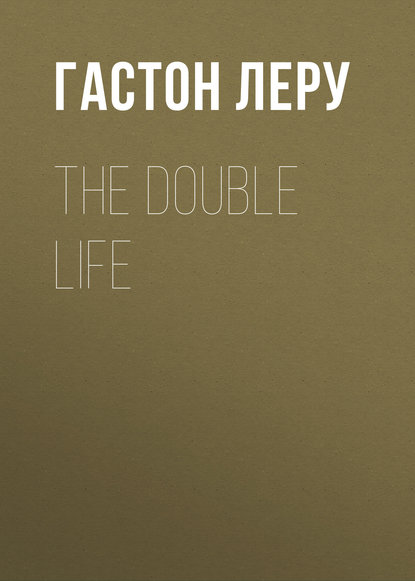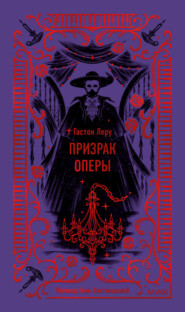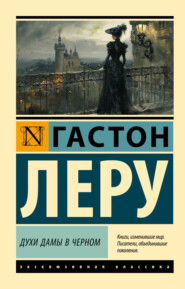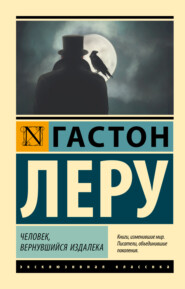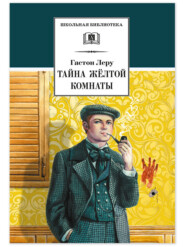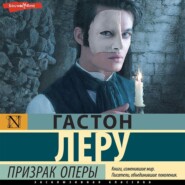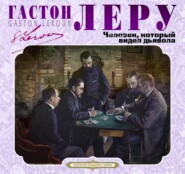По всем вопросам обращайтесь на: info@litportal.ru
(©) 2003-2024.
✖
The Double Life
Автор
Год написания книги
2018
Настройки чтения
Размер шрифта
Высота строк
Поля
Théophraste had been in a very depressed state of mind since leaving the Talfa. He had continually reproached M. Mifroid for getting him away. Upon coming upon the first signs of human existence, M. Mifroid drew his attention to them and declared that in a short time they would be out in the light of day again.
Soon they came across a skull with the signs of a candle near it, showing Catholic burial, then the gallery seemed to dip down, the ground became wet, and they found themselves wading through mire. Water dripped on them from crevices above, and the air became cold and damp. At last M. Mifroid recognized a part of the gallery, and again he sent a prayer up to heaven for his deliverance.
There was a Latin inscription cut out of the rock: “Ossa arida audite verbum Domini,” which M. Mifroid recognized as being near an entrance to the catacombs.
They had not proceeded far when voices were heard, and they found themselves in a large vault. This was a very different place than the hall of the Talfa, though. There were ordinary human beings here. Through the whole length of the hall chairs were arranged. The place was lit up by numerous candles enclosed in human skulls. At the end was a kind of rotunda where evidently the musicians sat, for a large circle of music-stands were arranged. A number of people were present getting ready for a feast. No one took any notice of the two strangers, as it was thought that they were invited guests, and they strolled through, watching the proceedings. Soon the musicians began to arrive one by one, and the people sat around making pleasantries, and passing the time away in talk. It was half-past one.
It was indeed a curious sight. Here down among the dead, with coffins and bones all around, had assembled a crowd to listen to music, and to make revelry. Fifty musicians had assembled, among whom M. Mifroid recognized many of the orchestra of the Opera House.
Soon the music started, Chopin’s “Dead March” being the first piece. After listening for some time M. Mifroid tapped Théophraste on the shoulder, whispering to him that it was time to go. They hurried along, and ten minutes later they found themselves on the earth again.
They walked together for about half an hour, neither uttering a word. They were both thinking what a wonderful experience they had gone through. The Talfa nation, with its peculiar habits, had impressed them wonderfully, and neither wished to disturb the other in contemplation of it all.
Suddenly Théophraste said: “What are you waiting for, M. Mifroid? Do you intend to arrest me?”
M. Mifroid had, in the emotion of the moment, forgotten his original mission. He, however, had become very friendly with Théophraste in the catacombs, in spite of his excesses, and so, now that he was confronted with the necessity of arresting him, he said: “No, my friend, I shall not arrest you. My mission was to arrest Cartouche, but as Cartouche is no more, I cannot arrest him. Besides, you, M. Longuet, are my friend.”
They then parted at the Buci Crossway.
CHAPTER XXXVII
An Old Friend
AFTER the footsteps of M. Mifroid had died away, M. Longuet remained standing at the street corner. A feeling of intense sadness and loneliness had come over him. He could not decide on whether to go back to his wife or to leave her altogether. But what would he do? If he left her he would have no home, and he would be an outcast from the world. He wandered for a long time through the streets, until he found himself opposite a door in the Rue Suger. He rang the bell and a man in a blouse and paper cap opened the door in response.
“Good-evening, Ambrose,” said Théophraste. “Are you up at this hour? I would not have disturbed you, but many things have happened since I last saw you.”
He had not seen him since the evening he came to ask his opinion on the watermark on the old paper.
“Come in,” said Ambrose cordially. “Make yourself at home. How are all the folks at home?” “I will tell you all to-morrow. What I want now is some sound sleep. I am tired out.”
Ambrose showed him his own bed, and soon Théophraste was stretched out and asleep.
The following day Ambrose tried to get some news from Théophraste, who, however, observed an absolute silence, and would not be persuaded to say a word. He was like a dumb man. He passed his time for two days in examining words and papers, which filled his pockets, and in writing, but always without saying a word.
One morning as he was preparing to go out, Ambrose asked him: “Where are you going?”
“I am going to see M. Mifroid about the details of a trip we took together, and of which you will learn when I am dead.”
“You are going to kill yourself?”
“Oh, no. There is no use in doing that. I shall die soon enough. But I shall come to your house to die, my dear Ambrose. After going to see M. Mifroid, I shall go to see my wife.”
“I did not dare to ask about her. Your sadness and silence made me fear some domestic trouble. It is all so inexplicable.”
“She still loves me,” said Théophraste.
Before letting him go, Ambrose made him change his underclothes, and lent him a clean shirt, as he said he could not see his wife decently in the rags he was in at present.
“I will put it on,” said Théophraste, “for my own sake, as my wife won’t see it. I’m not going near her. I shall only see her from a distance. I only want to learn if she is happy.”
CHAPTER XXXIX
The Final Tragedy
IT was nine o’clock in the evening, the season was well advanced, and a heavy mist hung over the land. M. Longuet went up the long drive toward the “Villa Flots de Azure.” His hand trembled as he cautiously pushed open the little garden gate. He crossed the garden step by step, to look around. His whole demeanor was one of evil intent. There was a light in the parlor, and the window was half open. With short steps Théophraste advanced, and stretching his head he peered in.
He fell back groaning. Placing his hands over his face, he tore the white locks on his forehead. The sight had frenzied him, and he felt a pang of agonizing jealousy go through his frame.
Marceline and Adolphe were there, locked in affectionate embrace! This is what he had come to see! His wife no doubt was happy, but in quite a different way from what he expected.
He sat down on the ground and wept with rage. Rising, his curiosity forced him to get nearer and listen.
What he heard only made him worse, and he inwardly felt that he was about to commit a great crime. However, he battled against this feeling, and ran away from the house. Something compelled him to return!
In a state of sanguinary expectation, comparable to nothing in the history of crimes, he again retraced his steps, found himself in the garden again, and without waiting to look in he bounded into the parlor.
M. Lecamus and Marceline were taken aback, and both uttered a cry of surprise. Their surprise was soon turned to terror, as Théophraste, seizing some stout cord, ran to Adolphe, and with superhuman strength and agility bound him hand and foot. Dragging him to the hall, he tied him to a newel post and left him. It was all done with such lightning speed that Adolphe hadn’t the time to resist the first attack, and he was as a child in the ferocious grip of Théophraste.
Turning around he ran to the sitting-room, and seized an old sword that was hanging on the wall. Marceline in her terror called to Lecamus to mind his ears. She feared that he would undergo the same treatment as Signor Petito. However, nothing was further from Théophraste’s thoughts, for turning on Marceline he struck her down with one blow. Two seconds later he was holding her head up to Adolphe, saying: “Haste thee now to kiss these lips while they are still warm.”
Adolphe could do nothing, so he touched the lips of the dead woman, and then fell in a faint.
Théophraste ran upstairs, and brought down from the garret an old trunk, and in less than twenty-five minutes he had the body of Marceline cut up and placed in it. He closed the trunk with a key, and putting it over his shoulder he said good-by to Lecamus. However, he might have said good-by to the door-post, for Lecamus was in a dead faint and choking from the cords around his neck.
Théophraste and the trunk disappeared in the darkness.
That same night one could have seen a man on a barge in the Seine discharging the contents of a trunk into the river. They could also have heard him murmur: “My poor Marceline, my poor Marceline! It was not your fault.”
At dawn Théophraste knocked at Ambrose’s door. Ambrose saw that he was greatly agitated, and asked him in sympathetic tones what had happened.
Théophraste could not reply. His tongue seemed riveted to his mouth. He crawled to the bed, and, lying down, wept.
At last Ambrose was able to console him sufficiently to get these few words from him: “I felt the flame of murder pass through my veins. The impulse to kill had returned to me after centuries. The same impulse that had made me decapitate my faithless wife, Marie Antoinette Neron, two hundred years previously, and to throw her body into the river. I forgive M. Lecamus. When I am dead go and look for him and tell him that I name him my testamentary executor. I leave him all my worldly goods. He will know what to do with the little oaken chest, in which is locked the terrible secrets of the last months of my sad life.” Having said these words, Théophraste raised himself on the pillow, for the oppression increased, and he knew that the end was near. His look was no longer of this world. His gaze was fixed on some imaginary object far away, and in a doleful voice he said: “I have seen-I see-I turn again toward the square ray of light.”
And he expired!
THE END





